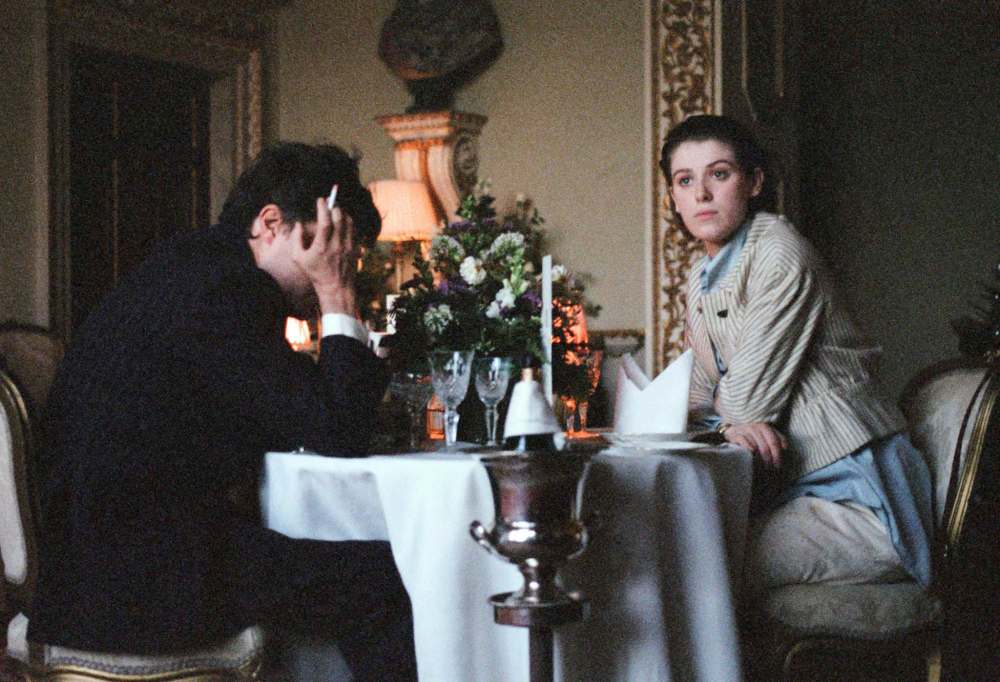Actor gives powerful performance in breakout role
Award-winning movie is a complicated portrait of director as a young woman
Advertisement
Read this article for free:
or
Already have an account? Log in here »
To continue reading, please subscribe:
Monthly Digital Subscription
$1 per week for 24 weeks*
- Enjoy unlimited reading on winnipegfreepress.com
- Read the E-Edition, our digital replica newspaper
- Access News Break, our award-winning app
- Play interactive puzzles
*Billed as $4.00 plus GST every four weeks. After 24 weeks, price increases to the regular rate of $19.00 plus GST every four weeks. Offer available to new and qualified returning subscribers only. Cancel any time.
Monthly Digital Subscription
$4.75/week*
- Enjoy unlimited reading on winnipegfreepress.com
- Read the E-Edition, our digital replica newspaper
- Access News Break, our award-winning app
- Play interactive puzzles
*Billed as $19 plus GST every four weeks. Cancel any time.
To continue reading, please subscribe:
Add Free Press access to your Brandon Sun subscription for only an additional
$1 for the first 4 weeks*
*Your next subscription payment will increase by $1.00 and you will be charged $16.99 plus GST for four weeks. After four weeks, your payment will increase to $23.99 plus GST every four weeks.
Read unlimited articles for free today:
or
Already have an account? Log in here »
Hey there, time traveller!
This article was published 05/09/2019 (2240 days ago), so information in it may no longer be current.
Applying edgy style to upper-middle-class English life, Joanna Hogg’s work (Unrelated, Archipelago, Exhibition) is both intense and delicate.
This slow, spare semi-autobiographical drama, which won the grand jury prize at Sundance, seems casually observed — with glimpses of domestic life, snatches of overheard conversation — but is precisely constructed. It feels intimate — almost unbearably so, at times — but its emotion is conveyed with dry detachment.
Tracking both a devastating love affair and a creative coming-of-age, The Souvenir is a complicated portrait of the artist as a young woman. The characters are presented with little explanation, the story loosely set out and then lightly filled in with naturalistic improvisation from an extraordinary cast. With its sudden flashes and lingering moods, The Souvenir has the texture of memory, and it uses old photos, vintage Super 8 footage and a cool mixtape-style soundtrack to call up the look and sound of Thatcherite England.
Julie (Honor Swinton Byrne) is attending film school in the 1980s while living in a Knightsbridge flat funded by her wealthy parents. Her mother, Rosalind (played by Swinton Byrne’s own mother, Tilda Swinton), sometimes pops in after she’s been to Harrods.
Julie is half punk and half posh, poised but not confident, guiltily reckoning with her class privilege while planning to make a docu-style drama about life in a decaying dockyard community.
She meets Anthony (Tom Burke) at a party. A little older, he possesses languid charisma and loads of sartorial style, but he can also be controlling, undermining and manipulative. (There’s a scene in which Julie and her fellow students dissect the cinematic lessons of Psycho, but Anthony’s tendency to micromanage Julie’s wardrobe, including designing a tailored grey suit for her to wear, suggests the Hitchcock film she really needs to be watching is Vertigo.)
Anthony, played as a compelling enigma by Burke, is supposedly “something at the Foreign Office.” The nature of his work might account for his sudden, mysterious absences, but it doesn’t quite explain why he keeps borrowing tenners from Julie.
It’s someone else who casually informs Julie, at a dinner party, that her boyfriend is a habitual heroin user.
The Souvenir is about love and addiction, but it’s never reduced to an issue movie. Julie is seen as a complete innocent but not as a complete victim, and her relationship with Anthony is presented as an emotional disaster but also a defining first love. The pair develops a complex interdependence. “The vile beast knows itself and miserable he is with it,” Anthony writes to Julie. “It is you who has power over the beast: to cheer, to encourage, to reprimand, to forgive.” She begins to need his neediness, and she starts to lie to family members and fellow students to cover up his lies, bringing them closer together.
Much of the action takes place in a replica of Hogg’s student flat, and Hogg’s unobtrusive camera makes expressive use of space. Hogg also has a tender way of collaborating with actors. Swinton Byrne is not only playing a version of Hogg’s younger self, she also happens to be the filmmaker’s real-life goddaughter, and that connection comes through. As a young woman trying to find her own voice, Swinton Byrne crafts a bravely vulnerable, quietly powerful performance.

Julie is, of course, trying to find her voice through film, and she and her friends spend a lot of time wrangling about the work of Powell and Pressburger (“true without being real”), the French New Wave and British social realism.
Without being in any way didactic, The Souvenir is about the tricky relationship between art and life, artist and subject. Hogg raises these questions and then implicitly answers them through the layered process and evocative final effect of this haunting and lovely film.
alison.gillmor@freepress.mb.ca

Studying at the University of Winnipeg and later Toronto’s York University, Alison Gillmor planned to become an art historian. She ended up catching the journalism bug when she started as visual arts reviewer at the Winnipeg Free Press in 1992.
Our newsroom depends on a growing audience of readers to power our journalism. If you are not a paid reader, please consider becoming a subscriber.
Our newsroom depends on its audience of readers to power our journalism. Thank you for your support.


